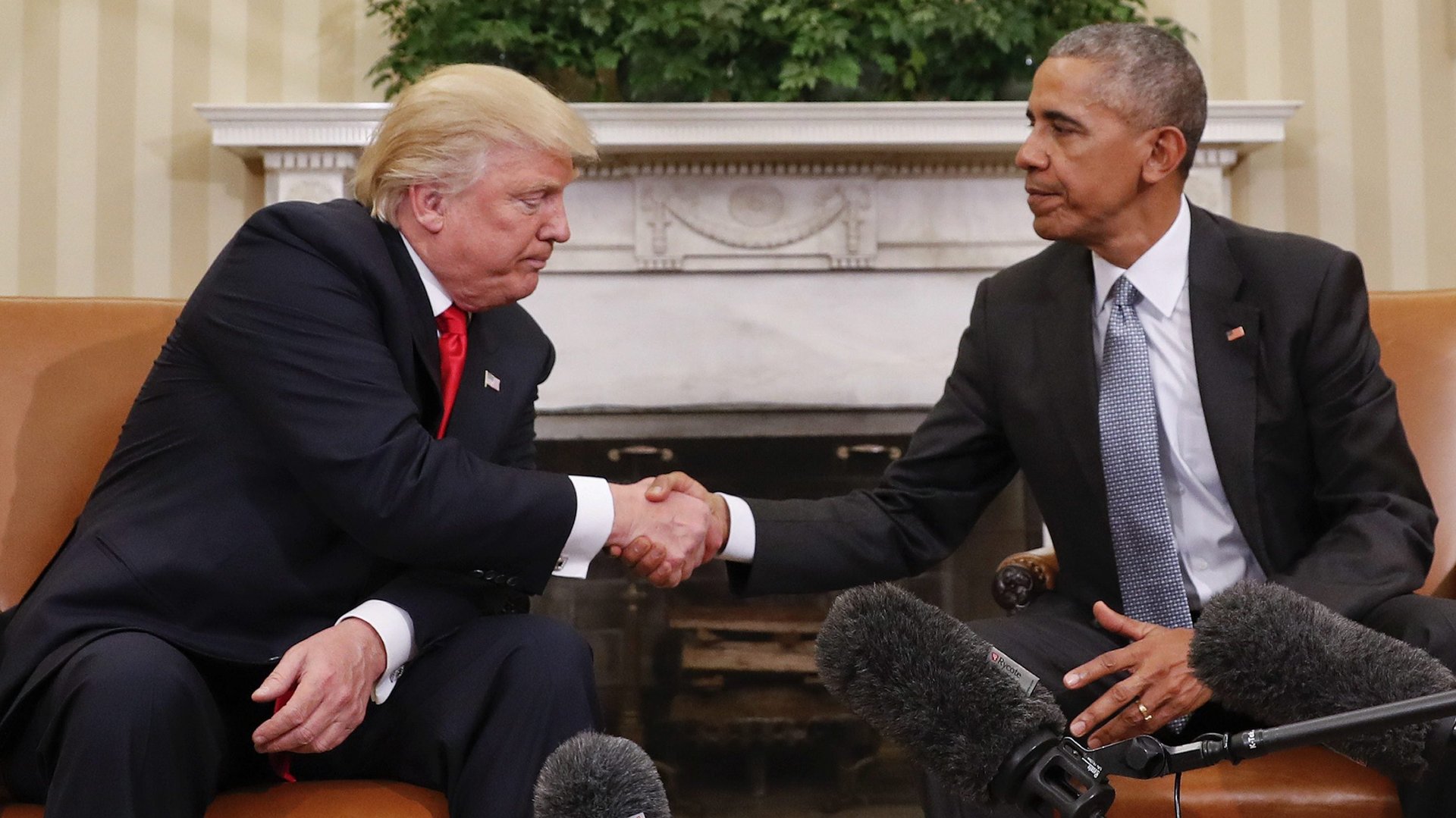To my fellow Republicans: Remember that Trump’s victory is not a mandate
It’s a harsh thing to say, but Hillary Clinton cost Democrats the White House. Far fewer Americans voted for her than have voted for other Democratic candidates in recent elections. More than 200 counties that president Obama won in 2008 and 2012 went for Donald Trump on Tuesday.


It’s a harsh thing to say, but Hillary Clinton cost Democrats the White House. Far fewer Americans voted for her than have voted for other Democratic candidates in recent elections. More than 200 counties that president Obama won in 2008 and 2012 went for Donald Trump on Tuesday.
Now there will be a strong temptation for Republicans to believe that Trump’s improbable victory, coupled with their retaining control of both houses of Congress, provides a clear policy mandate. But that would be a terrible mistake.
First, this was not a campaign in which detailed policy proposals were offered or evaluated. While Trump campaigned on certain proposals (“We’re going to build a wall“; NATO allies need to “pay their fair share“), his explanations for how those things would be achieved were infeasible and often contradictory.
Second, many of the policies for which Trump advocated as a candidate are flatly unconstitutional—a ban on Muslim immigrants; limiting press freedom—or have already been made illegal by a Republican-controlled Congress (torture).
Third, conservatives are by no means united behind president Trump’s policies, either in Washington (only 30 sitting senators endorsed him) or in state houses (only 5% of Republican state and local candidates endorsed Trump, whereas over 70% of Democratic candidates endorsed Clinton).
Fourth, presidential candidates very often change their policies once they are actually in office, as president Obama did with trade and counterterrorism.
Most importantly, sweeping into office with the belief that you have an unqualified mandate is a terrible way to govern our country. The founding fathers who built the American system of governance believed the country mostly ran fine without government interference, and so constructed a series of checks and balances that require broad public consent for any enduring change to happen. It’s only recently, with the rise of regulatory and administrative power in the executive branch beginning in the 1930s, that people began to worry that the government could act irreversibly.
Part of Trump’s appeal is tied to a desire to peel back those layers of accretion, eliminating regulation and government involvement in many areas of its activity. Republicans in Congress are eager to do the same. What they haven’t done is persuade voters of the specifics of how they plan to, for example, reduce government spending. The public is very often in favor of cutting government; less so when those cuts affect them directly.
For example, Donald Trump railed against the US level of national debt. Yet he also put forward policies that would substantially add to it, most egregiously suggesting Social Security needed to be more generous. Social Security’s expenses exceed its cash receipts by $84 billion last year. By 2035, the current Social Security Trust Fund will only be able to cover 75% of its program cost from taxes. It will run a 25% deficit in perpetuity unless benefits are reduced, the age of recipients raised, and Americans wealthy enough not to need the assistance are excluded from it. (Why does Warren Buffett get a Social Security check?)
Failing to put our entitlement programs on sound financial footing will enfeeble our ability to spend on discretionary programs like education, defense, transportation, energy, and the environment. This spending crowded out by both the expanding need for funding entitlement programs and servicing debt. That’s just arithmetic.
Paul Ryan’s “Better Way” plan offers many ideas about how to make those changes in small increments that don’t harm seniors and that allow time for adjustment. The key is getting the changes underway.
Republicans have an enormous opportunity to provide policies that can address the voter frustration highlighted by this election. But if Republicans try and force a change along party lines, it will not endure. As Thomas Jefferson said, “great innovations should not be forced on slender majorities.” Republicans won this election on a slender majority. An estimated 44% of American voters didn’t bother going to the polls, and those that did gave a very nearly even split to the candidates. Humility ought to be Republicans’ watchword in crafting policies in this Congress.
America is a riven electorate, evenly but deeply divided. And this has been a shockingly bitter campaign with some genuinely frightening excesses, especially on my Republican side. There is a lot—a lot—of work Republicans and Democrats must do together to tame the furies that are driving us further apart. The best thing for the country now is for our elected officials to avoid the temptation to force through partisan priorities, and instead start working on the areas that most Americans agree should be top priorities.